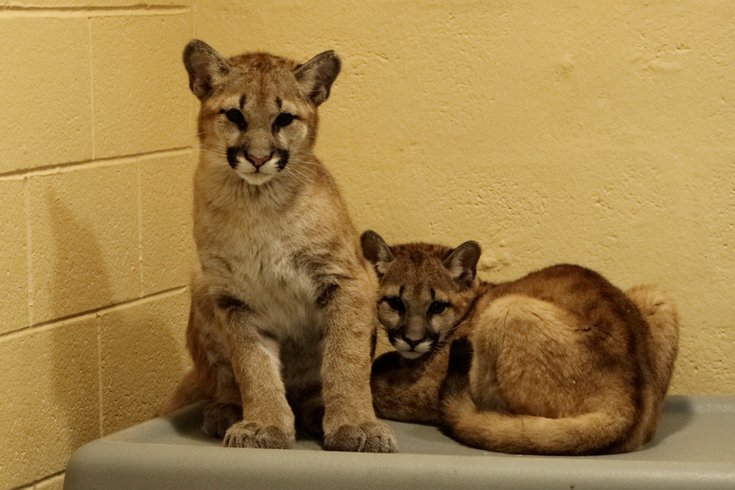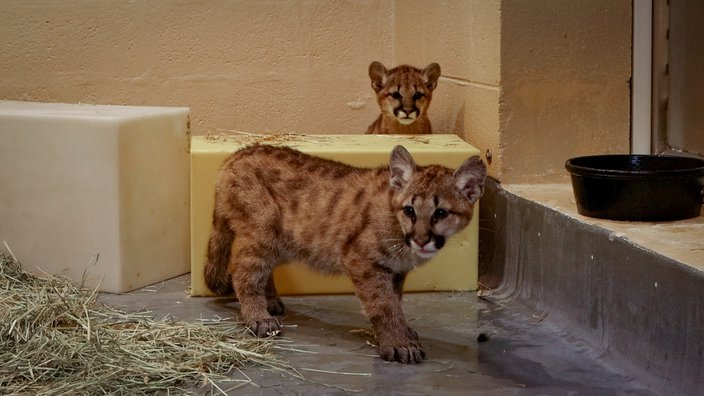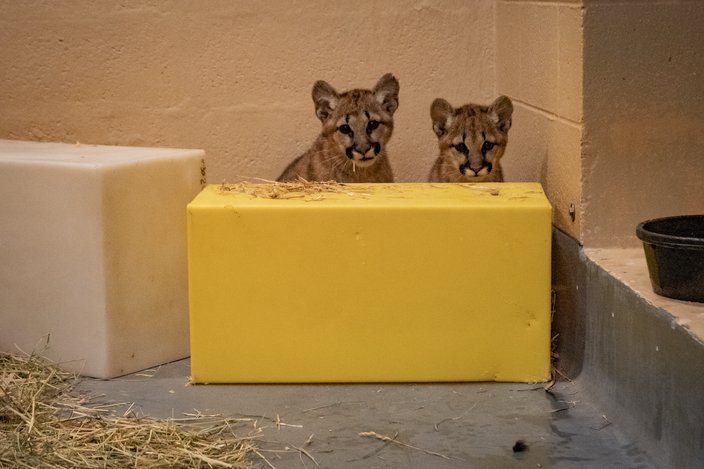
August 22, 2023
 Provided image/Philadelphia Zoo
Provided image/Philadelphia Zoo
The male cub (left) is named Elbroch after a prominent puma researcher, while the female cub (right) is named Olympia after the state capital of Washington, where the animals were rescued.
Philadelphia's newest residents have spotted fur, brawny hind legs and the skills to take down an entire moose.
On Monday, the Philadelphia Zoo announced the arrival of two orphaned puma cubs, which will now be permanent inhabitants of Big Cat Falls. The siblings were originally rescued in Kalama, Washington in June and came to the East Coast last month. Prior to flying to their new home at the Philly zoo, they were under the care of the Washington State Department of Fish and Wildlife.
The male cub is named Elbroch, after the puma researcher Mark Elbroch, and the female cub is named Olympia, after the state capital of Washington.
“Our keepers have been working in overdrive to come up with plans for socialization and training. Welfare is our top priority so the puma siblings will successfully acclimate to their new home,” said Maggie Morse, curator of carnivores and ungulates at the Philadelphia Zoo. “We are so thankful to our keeper and veterinary teams who have stepped up to give these cubs the best care possible, and we can’t wait for the public to meet them and learn their story.”
Elbroch and Olympia are currently under quarantine and will not be on display until late summer or early fall, the zoo said in a press release. The cubs will receive physical exams, vaccines and a customized diet designed by the zoo's nutritionist. Washington wildlife vets estimate the cubs are 30-40% underweight for their age, which is 20-21 weeks.
The cubs' Washington caretakers believe their mother was shot by a farmer. At birth, pumas are completely dependent on their mothers and cannot eat meat until they are about six weeks old. Without intervention, the cubs "would likely not survive on their own and without their mother," said Philadelphia Zoo vice president of animal well-being Rachel Metz.
Elbroch and Olympia are currently quarantined from the zoo's other resident animals.
Zookeepers are currently feeding the cubs a special diet to help them gain weight, and working on socializing them.
Elbroch and Olympia currently have brown spots on their tan fur, but those will fade as they grow and then disappear entirely at around six months of age. Elbroch is apparently the gutsier of the two, and a bit bigger than his timid sister.
Pumas, which are also called cougars or mountain lions, are mainly found in the western U.S. but have been migrating east of the Rocky Mountains in recent years. They have the largest hind legs of any feline species, enabling them to jump up to 18 feet in the air and 20 feet or more horizontally. While pumas are technically not big cats because they do not roar, they do purr, hiss and growl.
Follow Kristin & PhillyVoice on Twitter: @kristin_hunt
| @thePhillyVoice
Like us on Facebook: PhillyVoice
Have a news tip? Let us know.